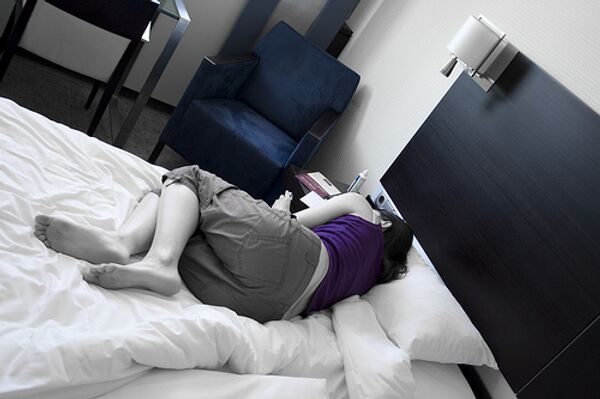About 20 percent of teenagers in Russia suffer from depression, compared to the Western European average of 5 percent, UNICEF global agency said in a report on Monday.
The data ties in with general figures for mental disorders among teenagers in countries of the former Communist bloc, which have undergone drastic changes in social and family structures, the United Nations’ children fund said in the report on childcare in Russia, presented at a press conference in Moscow.
Between 10 and 15 percent of Russian school students have severe depression that requires medical help, children psychologist Anna Kholmogorova of the Moscow State University of Psychology & Education said in a separate interview with RIA Novosti.
Alcohol and drug addiction are both symptoms and causes of mental disorders among teens, UNICEF said. Drug usage among the underage is slowly decreasing, but this is offset by children taking up alcohol ever earlier, with the number of officially registered alcoholics under 14 rising 60 percent in 2000-2009.
Teen suicides in Russia also far exceeded the global average of 10 cases per 100,000 people aged 15 to 19, the report said. Between 30 and 31 Russians per 100,000 in this age bracket were committing suicides every year in the 2000s, the report said.
Russia was hit by a string of teenager suicides in the last two weeks, with seven children aged between 12 and 15 taking their lives in separate incidents across the nation. Experts said the teenagers could have been following each others’ lead, thanks to the media coverage each received.


